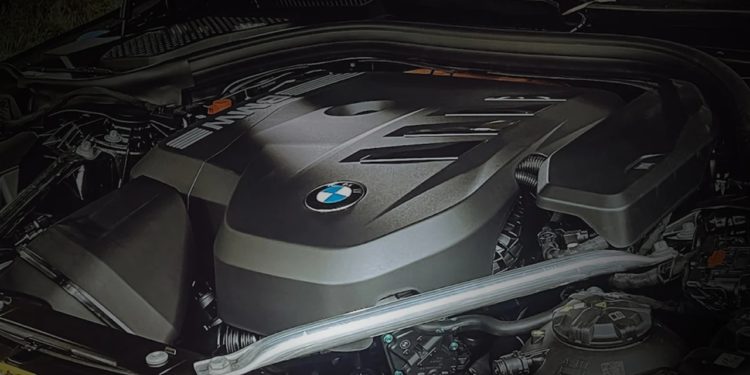BMW engines are renowned for their performance and durability. However, like any high-performance machine, they may eventually require significant maintenance. One option is cost-effective. It returns the engine to peak performance. It does so by rebuilding it. Are you looking at a BMW engine for sale? Or, are you considering an overhaul of your current power unit? It’s crucial to know when and why a rebuild might be needed.
An engine rebuild involves stripping the engine. This is done to get to its core and replace worn or damaged parts. It’s a detailed process that breathes new life into the engine. This practice extends the vehicle’s life. It also improves its performance and reliability.
Signs You Need a BMW Engine Rebuild
If your BMW is showing signs of wear, it might be time for an engine rebuild. Common signs are excessive oil use, poor performance, and odd engine noises. These signs suggest that the internal components are worn and need replacing.
A loss of power while driving is another clear sign. This happens when the engine can’t generate enough compression. This is due to worn piston rings or valves. Also, if your BMW’s engine emits blue smoke, it means oil is burning in the combustion chamber. This problem usually needs a rebuild.
Lastly, if your BMW has racked up high mileage, it’s wise to consider an engine rebuild proactively. Engines naturally wear over time, and preemptive rebuilding can prevent future breakdowns.
Benefits of Rebuilding a BMW Engine
Rebuilding a BMW engine comes with several benefits. Firstly, it significantly extends the vehicle’s lifespan. By replacing worn parts, the engine can work like new ones again. This avoids the need for a full engine replacement.
Secondly, a rebuild can enhance performance. Fresh components mean smoother operation and better efficiency. This might also result in improved fuel economy and power output.
Lastly, rebuilding is a cost-effective solution. It’s often cheaper than buying a new or used engine. Plus, it increases the value of your BMW, making it a worthwhile investment.
The BMW Engine Rebuild Process
The engine rebuild process is thorough and meticulous. It starts with disassembling the engine to inspect every component. Specialists look for signs of wear and damage, assessing which parts need replacing.
Next, the engine is cleaned thoroughly. This step removes all debris and contaminants. They could harm the rebuilt engine.
After cleaning, the rebuilding begins. Worn parts are replaced with new or refurbished ones. This includes critical components like pistons, rings, bearings, and seals. The engine is then reassembled and tested for performance and leaks.
What to Expect During a BMW Engine Rebuild
During a BMW engine rebuild, your vehicle will be out of commission for some time. The process is detailed and can take several weeks to complete. It’s important to plan for this downtime.
You should also expect regular updates from the rebuild shop. A good provider will keep you informed about progress and any issues.
Once the rebuild is complete, there might be a break-in period. This is a time when the engine needs to be driven under specific conditions. This is to ensure all parts are working together well.
The Cost of Rebuilding a BMW Engine
The cost of rebuilding a BMW engine can vary widely. It depends on the model, the extent of the rebuild, and the price of the parts. Generally, it’s more affordable than buying a new engine.
However, unexpected issues can arise during the rebuild, potentially increasing the cost. It’s wise to have a contingency budget just in case.
Despite the initial expense, a rebuild can be a cost-effective solution in the long run. It restores engine performance and reliability. This can save money on future repairs and maintenance.
Rebuilt vs. Replacement Engine: Which is Right for You?
Deciding between a rebuilt engine and a replacement engine depends on several factors. A rebuild is ideal for those who want to keep the original engine. They want to improve its performance and longevity. It’s also the more environmentally friendly option since it reuses existing components.
A replacement engine might be better. It’s for engines too damaged for cost-effective rebuilding. It can also be quicker, as finding a BMW engine for sale and installing it takes less time than a rebuild.
Ultimately, the decision should be based on cost, time, and your attachment to the vehicle. Consult with a trusted mechanic to make the best choice for your situation.
Finding a Qualified BMW Engine Rebuild Shop
Finding the right shop for your BMW engine rebuild is crucial. Look for a service provider with experience in BMW engines specifically. They should have a track record of successful rebuilds and positive customer reviews.
It’s also important to choose a shop that offers warranties on their work. This provides peace of mind knowing that your investment is protected.
Lastly, clear communication is key. A good shop will keep you informed. They will do so from the initial assessment to the final testing.
Extending the Life of Your Rebuilt BMW Engine
After your BMW engine has been rebuilt, there are steps you can take to ensure its longevity. Regular maintenance is paramount. This includes timely oil changes, filter replacements, and monitoring engine performance.
Avoiding harsh driving conditions can also help. Gentle driving is vital during the break-in period. It lets the new parts settle well.
Lastly, addressing any issues promptly can prevent minor problems from becoming major ones. Regular check-ups with your mechanic can catch these issues early.
Summing Up
A BMW engine rebuild is a detailed process that can bring your vehicle back to its former glory. It’s an investment in the longevity and performance of your BMW. You can choose well for your car’s future. How? By knowing the signs that your engine needs rebuilding and the benefits it brings. With good care and maintenance, your rebuilt BMW engine can work well for many years.









































































